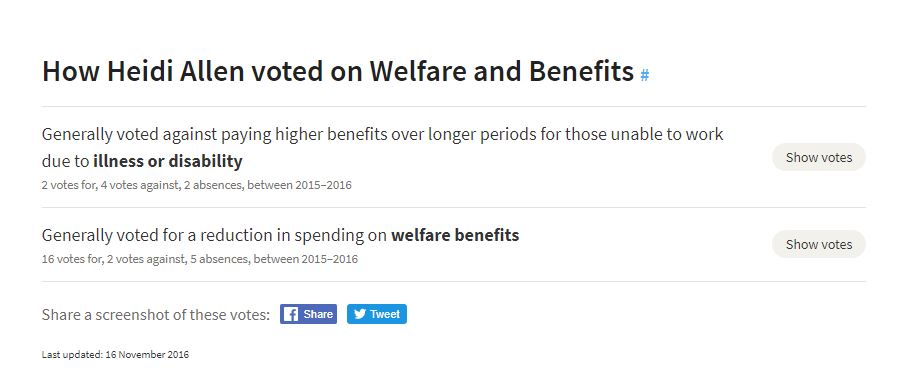Work TV
Watch our TV Channel dedicated to the ‘World of Work’. Explore our video library for informative videos featuring career opportunities at leading companies, franchising opportunities, further education and recruitment professions and their services.
Simon Collyer
Irish Employment (Miscellaneous Provisions) Bill 2017 Tackles Precarious Work Injustice
Employment Affairs and Social Protection Minister, Regina Doherty, T.D. has published the Employment (Miscellaneous Provisions) Bill 2017. The Bill delivers on the commitment in the Programme for a partnership Government to tackle the problems caused by the increased casualisation of work and to strengthen the regulation of precarious work.
Minister Doherty said: "This is a very important piece of legislation. The key objective of the Bill is to improve the security and predictability of working hours for employees on insecure contracts and those working variable hours.”
The Minister noted: “Good progress has been made in recent years in terms of our economic recovery, in creating new job opportunities, the majority of which are full-time positions. However, we must remember those people who, not by choice, are in less secure arrangements and may not know from week to week what hours they will be working. This makes it very difficult for people to plan their lives outside of work. This Bill will significantly improve the employment protections for these people.”
Employers must give employees basic terms of employment within five days
The Bill provides that employers must give employees five core terms of employment within five days of commencement of employment. Employers who have not provided this statement after one month will be open to prosecution. This is a new offence. It will also be an offence for an employer to deliberately misrepresent the information required in the statement of five core terms.
The Minister commented: “It is really important that employees are given their basic terms of employment at an early stage. These terms include, for example, the name and address of the employer, their pay and their hours of work. In the main, it should not be difficult for employers to provide this information.”
The Minister added: “It is not acceptable for employers to provide contracts of employment that are so vague about an employee’s hours of work as to be completely meaningless. What we are now saying in this Bill is that an employer must state what hours the employer reasonably expects the employee to work on a daily and a weekly basis. Those employers who do not provide this information to their employees will be leaving themselves open to criminal prosecution.”

Image: Zero hours contracts attract widespread criticism.
Prohibiting zero hour contracts
The Bill prohibits zero hour contracts in most circumstances. Such contracts will be prohibited in all circumstances except in cases of genuine casual work or where they are essential to allow employers to provide cover in emergency situations or to cover short-term absences. This flexibility would be required in residential care settings, for example, where a member of staff must accompany a resident in the care facility to hospital at short notice and an appropriately qualified substitute worker needs to be called in to cover the absence.
The Minister said: “While we understand that zero hour contracts are not prevalent in this jurisdiction, we want to ensure that that remains the position. Prohibiting such contracts except in some limited circumstances will help to achieve this goal.”
New minimum payment for employees called in to work but sent home again without work.
The Bill provides for a new minimum payment for low-paid workers who may be called in to work but sent home again without the promised work or any meaningful compensation.
The Minister said: “The focus here is on low-paid employees. We want to ensure that where low-paid employees are called in to work but sent home again without work, they get a reasonable compensation payment. This new minimum payment is being linked to the national minimum wage to ensure that the measure is focussed on those most in need of stronger protections in this area. I expect this provision will also act as a deterrent against the unscrupulous practice of employers calling into work ten people, for example, where there is only work for five people and the first five to show up get the work.”

Image: The Irish Parliament Building.
Banded Hours provisions
The Bill introduces a new right for employees whose contract of employment does not reflect the reality of the hours they habitually work. This creates difficulties for employees in accessing credit, including mortgages. Under the Bill, such employees will be entitled to be placed in a band of hours that better reflects the hours they have worked over a reference period.
The Minister said: “Under the Bill, where an employee’s contract provides for, say 15 hours per week, but they have been working an average of 30 hours per week over an extended period, they will be entitled to be placed in a weekly band of hours that better reflects the reality of their hours of work. In this case, they would be placed in the weekly band of 25-34 hours.”
The Minister added: “The banded hours provisions will significantly improve the predictability and security of working hours for employees, so that they can better plan and get on with their lives outside of work.”
Strong anti-penalisation provisions:
The Bill provides strong anti-penalisation provisions for employees who invoke their rights under this legislation. This is a key element of the Bill particularly for workers in less secure employment who may be afraid to exercise their rights.
The Minister said: “It is very important that all employees feel safe that they can exercise their employment rights without fear of being penalised for doing so. The penalisation provisions in this Bill are broadly drafted so as to provide strong protections for employees.”
The Minister added: “The penalisation provisions are core to the Bill and the new banded hours provisions in particular. Under the Bill’s banded hours provisions, if an employer reduces an employee’s working hours or threatens to do so, for the sole reason that the employee sought to exercise their rights, the employee can pursue a penalisation case through the Workplace Relations Commission.”
Balanced and Proportionate Proposals
The Bill is the result of extensive consultations, including a public consultation following the University of Limerick (UL) study on zero hour contracts and low hour contracts and detailed discussions with Ibec and ICTU over a number of months. Considerable effort has been made to ensure the proposals contained in the Bill are balanced and fair to both employees and employers.
The Minister said: “The vast majority of employers are good employers, who treat their employees well and who meet their responsibilities under employment law. These employers should have nothing to fear in this Bill. On the contrary, the Bill is aimed at tackling exploitative employment arrangements and those unscrupulous employers who do not respect even the most basic rights of employees.”
The Minister added: “We have taken care to ensure that, where we are introducing new rights for employees or strengthening existing provisions in the law, the measures are proportionate and balanced by reasonable defences for employers, recognising the challenges faced by employers in running their business or providing their service.”
Early introduction in the Oireachtas
The Bill was presented to the Dáil yesterday. Copies of the Bill and Explanatory Memorandum are available at www.oireachtas.ie . The Minister hopes that the Bill will be taken at Second Stage at an early date in the New Year.
The Minister said: “I am looking forward to working with colleagues on all sides of both Houses of the Oireachtas to progress this Bill as expeditiously as possible in the New Year.”
ABC Note:
Background to the Bill
The Bill is in response to the commitment in the Programme for a Partnership Government to tackle the problems caused by the increased casualisation of work and to strengthen the regulation of precarious employment.
It is the result of extensive consultations. It takes account of the public consultation carried out following the University of Limerick (UL) study on the prevalence of zero hour contracts and low hour contracts. Some 48 responses were received from a wide range of stakeholders. The responses to the public consultation contained extensive material and practical examples of the impacts of the specific legislative changes proposed by UL, which have informed the Bill approved by Government.
In addition, officials engaged in detailed discussions with Ibec and ICTU over a period of about six months. This process was very helpful in refining the draft proposals, in identifying unintended consequences and in focussing the proposals on low-paid employees.
Pre-legislative scrutiny
The draft legislation was referred to the Joint Oireachtas Committee (JOC) on Jobs Enterprise and Innovation in May for it to consider and determine if it wished to engage in pre-legislative scrutiny of the proposed Bill. The Minister of State for Employment and Small Business addressed the Joint Oireachtas Committee on the draft legislation during the course of his appearance before the Committee for pre-legislative scrutiny on the Banded Hours Contract Bill 2016 (Private Members Bill) in May this year. Separately, department officials briefed the JOC on the draft legislation on 20 June and the Committee subsequently decided not to undertake pre-legislative scrutiny.
Core Issues being addressed by the Bill
The Bill addresses a number of key issues which have been identified as being areas where current employment rights legislation can be strengthened to the benefit of employees, without imposing unnecessarily onerous burdens on employers. The key objective of the Bill is to improve the security and predictability of working hours for employees on insecure contracts and those working variable hours. The Bill addresses the following five issues:
• Ensuring that workers are better informed about the nature of their employment arrangements and in particular their core terms at an early stage of their employment. Currently 15 terms of employment are required to be given by employers to employees within two months. Instead it is proposed that the following five key terms of employment must be provided within five days of starting work for that employer:
- 1. The full name of the employer and employee
- 2. The address of the employer
- 3. The expected duration of the contract (where the contract is temporary or fixed-term)
- 4. The rate or method of calculating pay
- 5. What the employer reasonably expects the normal length of the employee’s working day and week will be.
Other required terms of employment should be provided within the current two month period.
The Bill also provides for the creation of a new offence where an employer does not provide the proposed statement of the five core terms of employment within one month of commencement of employment.
Strengthening the sanction for non-compliance will help to promote better work practices and provide greater clarity around the essential elements of the employment relationship for both the employer and the employee.
• Strengthening the provisions around minimum payments to low-paid employees who may be called in to work for a period but sent home without any or significantly less work and where they have not been paid. It is intended to introduce a floor payment for employees who are called into work and then sent home in these circumstances. For example, if an employer called six people into work and then decided only three were needed, the three sent home would be entitled to 25% of what they would have been paid for that shift but with a minimum payment of 3 x National Minimum Wage or 3 x Employment Regulation Order rate (where it applies).
• Prohibiting zero hour contracts except in cases of genuine casual work or emergency cover or short-term relief work for that employer. This proposal is to avoid the contagion of an increase in zero hours practices in this jurisdiction. There will always be a need for some casual work. However, in this Bill an employer who deliberately misrepresents employees as ‘casual’ leaves itself open to being prosecuted by the WRC for providing false and misleading information.
• Creating a new right for an employee, whose contract of employment does not reflect the reality of the hours worked on a consistent basis over a reference period of 18 months, to be placed in a band of hours that better reflects the actual hours worked over that reference period. This will provide greater certainty and a truer reflection of their hours of work and level of earnings, thereby addressing, in particular, difficulties employees may have accessing financial credit, including mortgages. The reference period of 18 months is considered sufficiently long to allow for the normal peaks and troughs of businesses, including those subject to seasonal fluctuations. An employee will be able to seek redress through the Workplace Relations Commission (WRC) but redress will be limited to being placed in an appropriate band of hours. Employers may refuse an employee’s request where
- a. the facts do not support the employee’s claim
- b. significant adverse changes have impacted on the business (e.g. loss of an important contract)
- c. emergency circumstances (e.g. business has had to close due to flooding)
- d. where the hours worked by the employee were due to a genuinely temporary situation (e.g. cover for another employee on maternity leave).
The provision will not apply to banded hours arrangements in employments where they have been agreed by collective bargaining.
• Strengthen the anti-penalisation provisions for employees who invoke a right under this Bill.
Chancellor Makes Derogatory Comments About Disabled People
This is what one disabled person had to say:
'I was enraged today when I read the comments Philip Hammond our Chancellor. He has hastily given the green light for discrimination against disabled people in the world place. apparently, we are to blame for the UKs low productivity!
Asked about a fall in productivity rates earlier this year, he said: “The consequences of high levels of unemployment, particularly youth unemployment, will be felt for many, many years to come.
“It is almost certainly the case that by increasing participation in the workforce, including far higher levels of participation by marginal groups and very high levels of engagement in the workforce, for example of disabled people.
Anna Bird, Director of Policy and Research at disability charity Scope, said:
“These comments are totally unacceptable and derogatory. They fundamentally undermine the Government’s policy to get more disabled people into work, and the ambition set out by the Prime Minister just a week ago.
“The Chancellor must urgently withdraw them and offer a full apology.”

Storm Caroline Brings a Freezing Blast - Stay Warm
Storm Caroline is set to batter parts of the UK with gales ahead of another freezing cold snap bringing blizzards and heavy snow showers across Britain.
We love our Windy TV here at the ABC.
Click on this link below:
Retirement Age Must Be Raised for Private Sector Workers Also Say Irish Social Democrats
Social Democrats co-leader Róisín Shortall TD has welcomed the government’s move to raise the compulsory retirement age for public sector workers to 70 – but called for the same flexibility to also apply to private sector employees.
Deputy Shortall said:
“Many people in their late sixties are valuable members of the workforce, whether they work in the public or private sectors. Yet we now have a situation where many private sector workers are forced to retire at the age of 65, one year before their state pension entitlements kick in, while their counterparts in the public sector will have the option of continuing to work until they are 70.
“In some cases, private sector retirees will be able to claim an occupational pension and in other cases they may be able to find alternative employment. But in many cases, they will simply be left with no option but to sign on the dole for a year until they qualify for a State pension at the age of 66. These people face the ridiculous situation of an enforced ‘gap year’ – they are considered too old to work by their previous employer but too young by the State to claim a pension.
“The government set up a working group in 2012 to look at harmonising retirement pension ages. This issue clearly takes on much more urgency now that a decision has been made to increase the compulsory retirement age for public sector employees to 70. We can’t allow a two-tier retirement system to continue that disadvantages private sector workers.”

Image courtesy of the Irish Mirror: Róisín Shortall TD
ABC Note: The Social Democrats (Irish: Daonlathaigh Shóisialta) was established by co-founder Róisín Shortall (also Stephen Donnelly and Catherine Murphy). Ms Shortall is a former Labour Party TD and former Minister of State for Primary Care.
Labour Has Successful Forced DWP Minister David Gauke to Release Universal Credit Papers
Labour has used Brexit tactics to secure UC implementation reports that Work and Pensions Secretary David Gauke warns must be kept confidential. David Gauke warned campaigners the contents should not go public. The DWP minister claimed in parliament they contained nothing damning.
The Rt Hon David Gauke is a British Conservative Party politician and a solicitor. He has been the MP for South West Hertfordshire since 2005 and is the current Secretary of State for Work and Pensions.

Image: The Rt Hon David Gauke.
Conservative MP Heidi Allen Breaks Down In Tears
Heidi Allen a Conservative MP wept in the House of Commons after hearing of the desperate situations of people affected by government welfare reforms. Heidi Allen’s voice cracked, and she was visibly emotional following the speech by Labour’s Frank Field, chairman of the Work and Pensions Select Committee.
Heidi Allen’s voice faltered, and she was visibly emotional following the speech by Labour’s Frank Field, chairman of the Work and Pensions Select Committee after he had described the poverty and desperation he has witnessed in his constituency of Birkenhead, Merseyside.
This included him persuading a man not to commit suicide and meeting a family who had a ‘lucky week’ because neighbours invited them to a funeral ‘so they could finish off the food’. Describing his conversation with the suicidal man, Mr Field said: ‘I realised the hand that shook my hand was wet. He had been crying. Tory MP Heidi Allen cries after Universal Credit story. ‘And the hand that shook my hand was the hand that wiped away those tears.’ In response, Ms Allen, the MP for South Cambridgeshire, said: ‘I don’t know where to start after that.
This can be seen here: http://www.abcorg.net/item/1851-opposition-day-debate-a-debate-on-universal-credit-on-a-motion-in-the-name-of-the-official-opposition

Image: Conservative MP Heidi Allen
Others however have pointed to the Rt Hon Heidi Allen's Voting Record
Devolving Administration of Social Security Would Protect Welsh Families Say Siân Gwenllian
The Labour Welsh Government is letting the UK Tory government do its worst to Wales’ most vulnerable people, Plaid Cymru Shadow Cabinet Secretary for Equalities Siân Gwenllian has said.
Siân Gwenllian said that the Welsh Labour Government could call for the devolution of the administration of social security to protect vulnerable universal credit claimants suffering from hardship by ending the culture of sanctions and help families struggling with their payments, but it chooses not to.
Siân Gwenllian pointed to the example in Scotland where the government has negotiated a financial settlement which means that payments can be administered by them, not by Westminster, at no extra cost to the Scottish Government.
Ahead of the Plaid Cymru debate in the Senedd, Plaid Cymru Shadow Cabinet Secretary for Equalities Siân Gwenllian said:
“The Universal Credit system is going to be rolled out across Wales in December and as politicians we are bracing ourselves for the devastating impact it will have. Where it has been rolled out already, Universal Credit has wreaked chaos on people’s lives. Debt, evictions and food bank usage have increased in the areas where it has been trialled.
“But instead of trying to help families, the Welsh Government has washed its hands of the issue. The Labour government’s argument that devolving the system may be expensive doesn’t hold water - the cost would be negligible because in Scotland the corresponding budget has been devolved along with the power. The precedent has been set and there is no reason why this can’t happen in Wales.
“At present, many Universal Credit claimants have to wait up to six weeks for their payments. By devolving Universal Credit we could alter the frequency of payments, as they have done in Scotland, to make them fortnightly. We could also bring an end to the culture of sanctions, and begin looking after people instead of seeking to penalise them.
“Devolving the administration of social security to Wales would be cost neutral and would help Welsh families – it’s time for the Labour Welsh Government to stand up for Wales and its citizens.”
Live: Prime Ministers Question Time
It’s PMQs day and Theresa May and Jeremy Corbyn again have enough topics to choose from when they face each other over the despatch box.
Corbyn could highlight new warnings about UK tax havens, Trump’s Jerusalem gamble, homelessness figures or Universal Credit.
ABC Note: Question Time in the House of Commons is an opportunity for MPs to question government ministers about matters for which they are responsible.
Prime Minister’s Question Time, also referred to as PMQs, takes place every Wednesday that the House of Commons is sitting and gives MPs the chance to put questions to the Prime Minister.
In most cases, the session starts with a routine 'open question' from an MP about the Prime Minister's engagements. MPs can then ask supplementary questions on any subject, often one of current political significance.
Opposition MPs follow up on this or another topic, usually led by the Leader of the Opposition.
DWP Select Committtee Live PIP's Assesmented Under the Microscope
DWP Select Committtee
PIPs under the microscope.
10:55:12
Witnesses: Dr Paul Williams, Programme Director, Centre for Health and Disability Assessments (CHDA) MAXIMUS and Leslie Wolfe, General Manager, Global Health, Centre for Health and Disability Assessments (CHDA) MAXIMUS
09:36:24
Witnesses: Simon Freeman, Managing Director, Capita Personal Independence Payments, Dr Ian Gargan, Chief Medical Officer, Capita Personal Independence Payments, David Haley, Chief Executive, Atos Independent Assessment Services and Dr Barrie McKillop, Clinical Director, Atos Independent Assessment Services
Disability Day in the European Parliament Hemicycle
Around 600 people with disabilities will today participate in an all-day event in the European Parliament’s hemicycle, coinciding with the 20th anniversary of the founding of the European Disability Forum. President Antonio Tajani and Commissioners Marianne Thyssen and Christos Stylianides will give keynote speeches.
EDF in cooperation with the European Parliament is actively preparing the 4th edition of a major event: the European Parliament of Persons with Disabilities (EPPD). The EPPD is a landmark event which represents a unique opportunity for European citizens with disabilities, both leaders and grass-root activists, to have a dialogue with their elected representatives and speak up for their rights. It is a unique event which shows Parliament’s support to persons with disabilities and the importance of the dialogue between European citizens with disabilities and their MEPs. The discussions will focus on the right of persons with disabilities to vote and participate in political and public life, the European Disability Strategy 2020-2030 and the implementation of the United Nations Convention on the Rights of Persons with Disabilities (UN CRPD) by the European Union (EU).
The event will take place on Wednesday 6 December (whole day) in the European Parliament in Brussels (plenary chamber). It will bring together hundreds of delegates of representative organisations of persons with disabilities from all over Europe, Members of the European Parliament (MEPs) and high level representatives of other EU institutions. Already more than 600 delegates with disabilities from across Europe have confirmed their participation in the event.
The President of the European Parliament, Antonio Tajani, and EDF President Yannis Vardakastanis will open the event.
Speakers include, among others:
- Emily O'Reilly, European Ombudsman
- Georgios Dassis, President of the European Economic and Social Committee (EESC)
- Dimitrios Papadimoulis, Vice President of the European Parliament
- Marianne Thyssen, European Commissioner for Employment, Social Affairs, Skills and Labour Mobility
- Christos Stylianides, European Commissioner for Humanitarian Aid and Crisis Management
- Jana Hainsworth, President of Social Platform
During the event, delegates with disabilities will adopt a) a resolution on the European Disability Strategy, b) a manifesto on accessible European elections 2019 and c) an emergency resolution on a strong European Accessibility Act.
The resolution on the European Disability Strategy is also available in Easy To Read version here The Manifesto on accessible European elections 2019 is also available in Easy To Read version here
20 years EDF
This year, the 4th EPPD will coincide with the 20th anniversary of EDF, and the European Day of Persons with Disabilities. EDF was created in 1997 to give persons with disabilities one common voice at European level and to ensure that decisions concerning persons with disabilities are taken with persons with disabilities, through their active involvement in policy and decision-making: This is the basis of our motto ‘Nothing about us without us’.
A photo exhibition with photos from important moments of EDF's 20-year history will take place outside of the hemicycle.
The previous editions of EPPD took place in 1993, 2003 and 2012. After the 3rd EPPD, political Group Leaders agreed to hold it once per legislature.
The conference will be webstreamed live, with subtitles and international signs interpretation on the European Parliament Web TV as well as on this page on EDF wesbsite.
To ensure people with disabilities have equal representation and opportunities in society and in the workplace, the European Parliament is looking to further the EU-wide Disability Strategy, tackling issues such as gender equality, poverty and discrimination. MEP Helga Stevens has long been involved in the fight for the rights of people with disabilities. She argues that more can be done for the disabled in terms of representation and inclusiveness.

























